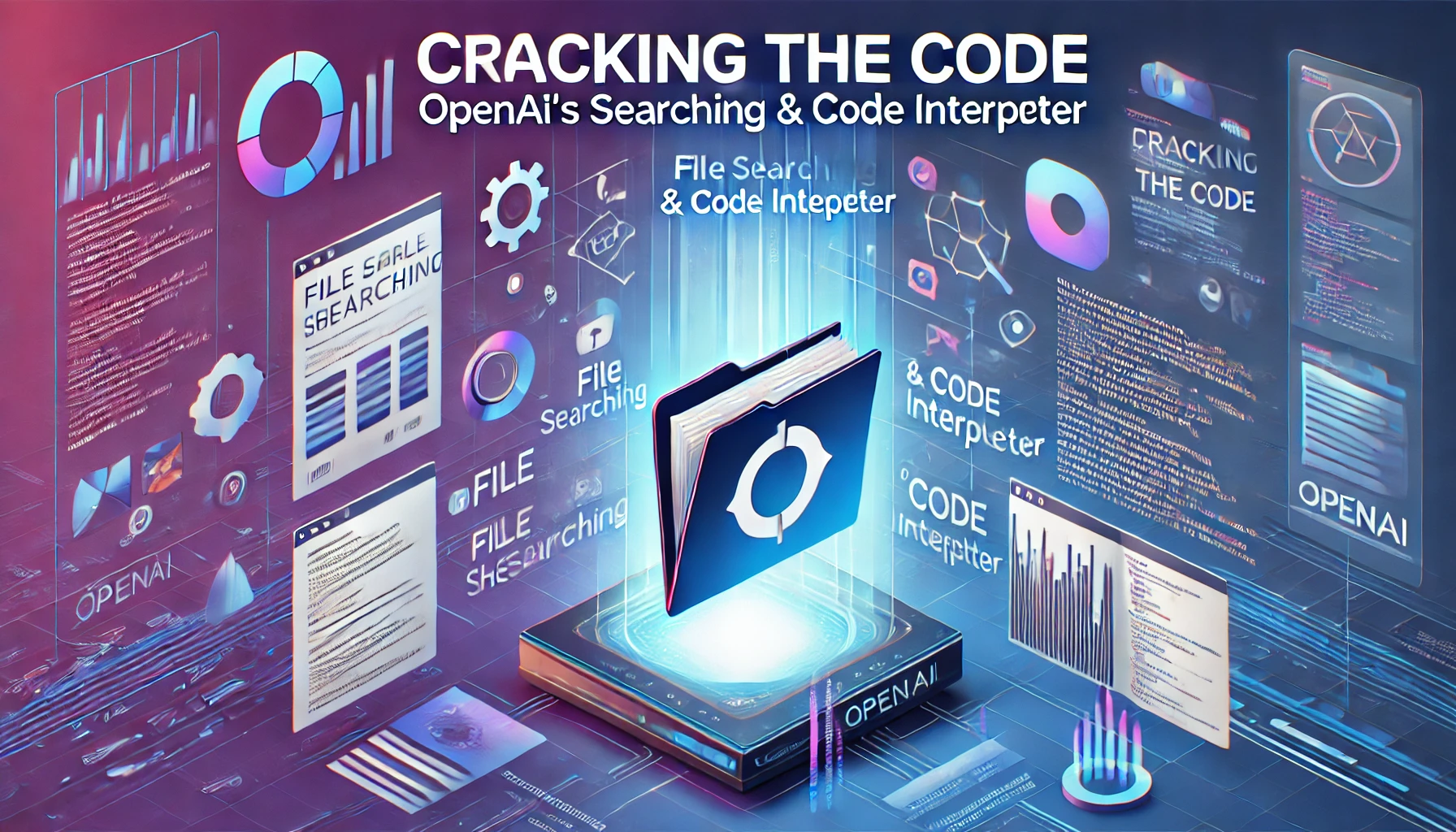Cracking the Code: My Journey with OpenAI’s File Searching & Code Interpreter Tools
As I dove deeper into OpenAI’s File Searching and Code Interpreter, I didn’t just use them—I pushed their limits to uncover what works, what doesn’t, and how to optimize their performance. Here’s a breakdown of how these tools worked for me, where they shined, and where they stumbled.
📂 File Searching: Turning Files into Knowledge
I used File Searching to extract data from all kinds of files—photos converted to text, PDFs, emails—you name it. Here’s how it went down:
- Text Conversion Triumph: By converting image-based files to text, I could process them easily. PDFs and emails worked similarly, delivering insights I needed.
- PDF Puzzle: The biggest hiccup? PDFs with multiple pages! If the text spanned across pages, chunks of information got lost in translation. Processing page-by-page ensured better accuracy.
- Language Limitations: File Searching doesn’t play well with some languages—Laotian, for instance, was a no-go. This was frustrating when dealing with multi-lingual datasets.
- CSV & Excel Roadblock: File Searching stumbled on structured data formats like CSVs and Excel. It’s here where the Code Interpreter came to the rescue.
️ 🛠️ Code Interpreter: JSON Juggling & Data Mastery
This tool became my go-to for structured data and complex analyses. Here’s what stood out:
- Weather Wizardry: I fed Code Interpreter JSON data for weather predictions. It processed the data brilliantly, analyzing and generating precise answers.
- JSON Woes: Syntax errors in JSON files caused issues. Double-checking the formatting saved me headaches.
- Prompt Power: Breaking queries into clear, concise points proved far more effective than long, detailed prompts.
🤖 Lessons from the Trenches
- Vector Challenges: The vector store struggled with visual spacing in PDFs, sometimes misinterpreting the layout. Multiple vectors couldn’t consistently collaborate, leading to gaps in data.
- Re-upload Ritual: Occasionally, the tools failed to retrieve document data, even when the file seemed fine. A quick re-upload usually fixed this.
- Efficiency Tips: Chunking PDFs into single pages and simplifying prompts massively boosted accuracy and response quality.
✨Why This Matters
The interplay between File Searching and Code Interpreter is like a tag team of brilliance. One excels where the other falters:
- File Searching: Great for unstructured text and multi-source insights.
- Code Interpreter: A pro at structured data, analysis, and JSON handling.
Sure, there were hurdles—language limitations, vector quirks, and data missteps—but with a little tweaking, these tools can become your personal AI geniuses.
🔗 What’s Next?
I’ll keep exploring, refining, and sharing what works. The possibilities are endless, but the lessons so far are clear: understanding the quirks of these tools is key to unlocking their full potential. 🚀





